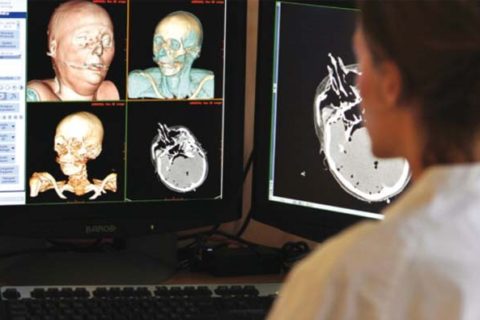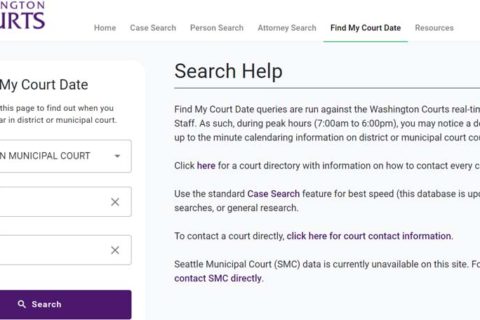Let’s say that there is someone that you know and he is charged with a criminal offense. If so, then he needs to choose the right criminal defense attorney and doing it is important, but challenging. By choosing the right lawyer, the lawyer will enlighten him on the available defense and also the steps that he needs to take if he is convicted.
According to the E Law Talk site, here are 10 types of criminal defense lawyers.
Self-Defense
If the case is about self-defense, then the defendants need to be able to prove that their actions were for protecting themselves or others from danger. The idea behind this type of criminal defense is that people have the right to protect themselves, their family or friends and their fellow citizens. So, a self-defense lawyer is needed in this case and the lawyer will examine the case by learning to dig into the aggressor, the reasonableness of the defendant’s belief that they were in danger, and whether the action of the defendant is justified.
Insanity
In the insanity defense, the lawyer tries to establish that the defendant was not able to differentiate between right and wrong at the time of the offense or that the defendant was faced with an ‘irresistible impulse’ to commit the crime. The insanity defense is rarely used in real-life criminal cases. One of the reasons is because it is classified as an affirmative defense where it means that the defendants need to prove that they were in a severe psychological disorder or illness when they were committing the crime.
Intoxication
Intoxication criminal defense applies to cases where the defendants do not realize the implications of what they do or what they say because they are intoxicated. Many limitations regarding the use of this defense are present, but an important consideration is whether the intoxication was voluntary or involuntary.
Involuntary Intoxication
Let’s say that you are tricked or forced to drink alcohol or consume a drug. If so, it is involuntary intoxication and if it results in a specific crime, you need to be able to prove that the intoxication prevented you from forming the intent to commit the crime. Involuntary intoxication also includes cases which are related to the effects of a legal prescription drug and in this case, the drug needs to have resulted in unintended effects or caused an allergy to the defendant.
Voluntary Intoxication
Voluntary intoxication defense is very complex because the defendant brought the intoxication upon himself or herself. The current legal standards hold that this defense is only valid for certain specific crimes and even in the crimes, it is very hard to establish the defense. Voluntary intoxication is never able to be used to excuse a defendant who is involved in a general intent crime. Besides, if defendants can use voluntary intoxication to secure a defense, he or she may not be able to completely get away with the charge.
Coercion or Duress
You are able to consult a lawyer who specializes in Coercion or Duress defense if you are forced by someone to commit a crime by threatening you with unlawful force. This criminal defense is a defense that requires the defendants to be able to admit to committing a crime and separately prove how they were forced to do it.
Defense of Necessity
What is defense of necessity? It is the type of criminal defense that tries to prove that certain extraordinary circumstances cause the defendant to commit the crime. Usually, the defendant says that they did not have any other choice but to disobey the law.
Let’s say that you stole a car to drive a gunshot victim to hospital or stole some food to feed a starving people. If so, you may be able to prove the necessity. However, if you stole the same car because you wanted to go on a vacation or attended a party, then the defense would not apply.
Consent
According to criminal law, if the action is deemed as a criminal offense, it is important that the victim was opposed to the crime. It means that if the defendant can prove that they committed the crime with the victim’s consent, it would not be considered a crime at all. The consent will not be considered valid if the person does not have an authority to express consent. Besides, the consent is not considered valid if it was obtained by force or duress. However, there are also certain cases where the law does not accept the consents for example, a sexual assault where the victim is a minor.
Consent to Bodily Harm
Consent may be able to be used as a defense in cases that involve physical harm such as assault and battery cases. However, if the victim undergoes serious injury, the defendant is not able to establish the victim’s consent. Besides, the harm needs to be considered as a reasonable possible outcome of the defendant. To make sure the victim’s consent, the conduct needs to bring some benefit to the victim. This kind of cases appear in sports that involve physical touch like soccer, boxing, and rugby, but then use of this defense is very rare due to the strict requirements.
Consent to Sexual Assault and Other Crimes
The defense of consent is also available to defendats that face the charge of rape or sexual assault. The defendant can prove that the victim was aware of and did not have objection to what was done by the defendant.
Mistake of Fact
In criminal law, if the defendants did not know about a fundamental fact and it made them commit the crime, they are able to use the mistake of fact defense. Even though this defense considers ignorance of the facts, it does not apply for ignorance of the law.
Abandonment and Withdrawal
This is a criminal defense that appears when the defendant denies their involvement in a crime since they decided to abandon or withdraw from the act before it happened. This is an affirmative defense because the defendant is not able to simply rely on challenging the evidence of the prosecutor. The defendant needs to be able to show the evidence that he abandoned or withdrew from the criminal conduct.

A bookworm and researcher especially related to law and citizenship education. I spend time every day in front of the internet and the campus library.





